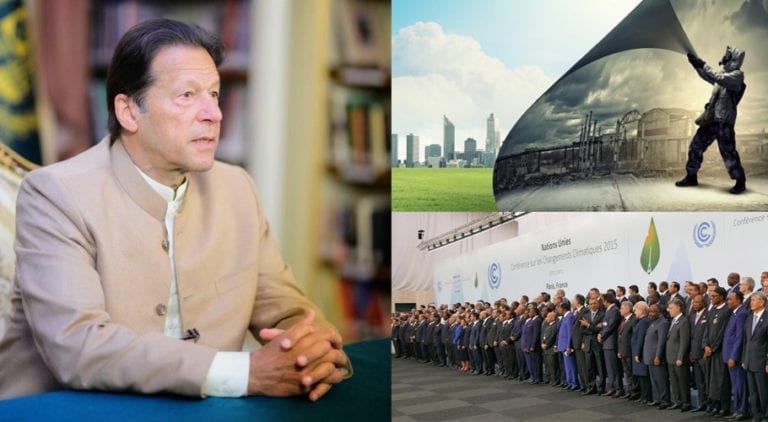The United Nations chief has called on world leaders to declare a state of “climate emergency” in their respective countries to avoid catastrophic global warming.
UN Secretary-General Antonio Guterres’ comments came during his opening statement to the Climate Ambition Summit organized on the fifth anniversary of the landmark 2015 Paris climate agreement.
The event was aimed at building momentum for much steeper cuts in carbon emissions. The one-day summit has ended and we need to see effective legislation to pay heed to the UN chief’s warning.
Climate Emergency
In Paris, five years ago, states promised to limit the rise in global temperature to 1.5 degrees Celsius as much as possible. These pledges were not implemented or completely ignored and the United States pulled out of the accord abruptly under President Donald Trump’s administration.
Now five years later, the UN chief is warning that if the global community does not change course, the globe may be headed towards a “catastrophic” temperature increase of more than 3 degrees Celsius this century.
The state of emergency should remain in place until carbon neutrality is achieved, meaning that no more additional greenhouse gases are being pumped into the Earth’s atmosphere.
He said G20 nations, who are responsible for a lion’s share of carbon pollution, were spending fifty percent more in economic packages during the coronavirus packages to protect fossil fuel sectors than to low-carbon energy which will burden future generations
Those countries that have announced net-zero targets should fulfill their promises and accelerate emissions cuts. Every country, city and company needs to adapt plans to reach zero emissions by 2050 and start executing them now.
This was the message by the UN chief that climate action can be the catalyst for new jobs, better health and resilient infrastructure. The world should act on these warnings before it is too late.
What was achieved?
The global summit has ended and some seventy heads of state and other political and business leaders have delivered a raft of new measures, policies and plans, aimed at reducing greenhouse gas emissions.
The number of countries coming forward with strengthened national climate plans (NDCs) grew significantly with commitments covering some of the world’s biggest emitters on display such as the United Kingdom, China and France.
The UK, which is hosting next year’s UN Climate Conference, announced that it will cut emissions by 68 percent, compared to 1990 levels, within the next five years, and the European Union committed to a 55 percent cut over the same time period.
At least 24 countries announced new commitments, strategies or plans to reach carbon neutrality, and a number of states set out how they are going even further, with ambitious dates to reach net-zero: Finland by 2035, Austria by 2040 and Sweden by 2045.
China committed to increasing the share of non-fossil fuel in primary energy consumption to around 25% by 2030, while India will soon more than double its renewable energy target, and
Pakistan’s commitments
Unlike previous climate summits, no negotiations are planned. Only countries with climate policy achievements are permitted to speak, to pile pressure on other participants.
Prime Minister Imran Khan was among the ten leaders who were invited to speak for his environmental policies and campaigns. He reiterated that Pakistan will be doing its best in contributing to mitigate the effects of climate change.
He vowed to clean up the environment and scrap coal-based power projects. This will not affect the coal industry or indigenous coal reserves as Pakistan will produce energy either by coal to liquid or gas without having to burn coal for energy. Pakistan will produce 60 percent clean energy through renewable resources and run 30 percent of vehicles on electricity by 2030.
The prime minister has won accolades globally for his ambitious tree plantation campaign that helped increase forest cover by one million hectares. He said his government has decided to have nature-based solutions to mitigate the effects of climate change by planting 10 billion trees in the next three years.
Effects of climate change
The world needs more action than talks as the effects of climate change are already being seen. There is more carbon dioxide in the atmosphere today than at any point in the last 800,000 years.
Global warming is increasing the Earth’s average surface temperature due to greenhouses. Glaciers have shrunk, ice on rivers and lakes is breaking up earlier, plant and animal ranges have shifted and trees are flowering sooner.
Global warming puts coral reefs in danger as the ocean warms, scientist fear that coral reefs will not be able to adapt quickly enough to the resulting changing conditions, and bleaching incidents and diseases will increase
Heatwaves caused by global warming present a greater risk of illness and death, most frequently among people who have diabetes who are elderly or are very young.
The way forward
The summit is a staging post towards the vital UN COP26 talks, aimed at putting countries on track to meet the obligations of the Paris agreement. The talks will be hosted by the UK in Glasgow next November after they were postponed this year owing to the coronavirus pandemic.
This is not the time for talks but rather action. The world cannot risk the existence of the human species merely on our whim and to protect our economic interests. The world should announce a ‘climate emergency’ and make it their priority rather than spending on defence systems, weapons and development projects.



































